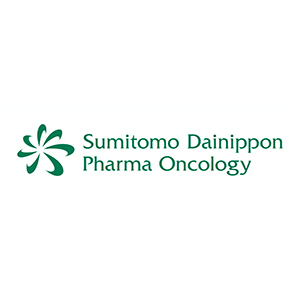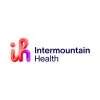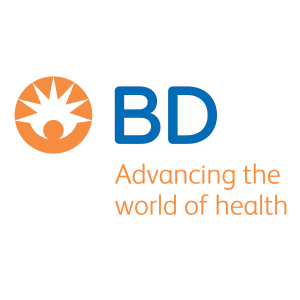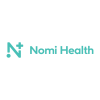
Sumitomo Dainippon Pharma Oncology Announces First Patient Dosed in the Dubermatinib Arm of The Leukemia & Lymphoma Society’s Beat AML Master Clinical Trial in Patients with Acute Myeloid Leukemia
December 10, 2020
Sumitomo Dainippon Pharma Oncology, Inc., a developer of novel cancer therapeutics, today announced the first patient has been dosed in a Phase 1b/2 study evaluating the oral investigational agent, dubermatinib (TP-0903), an AXL kinase inhibitor, in combination with decitabine, in patients 60 years or older with newly diagnosed acute myeloid leukemia (AML) who have TP53 mutations and/or complex karyotype. This study is a new arm included in The Leukemia & Lymphoma Society’s (LLS) groundbreaking Beat AML Master Clinical Trial.
The primary objectives of the study are to determine the safety and maximum tolerated dose of dubermatinib in combination with decitabine and evaluate the composite complete response rate. Secondary objectives of the study include overall survival and proportion of patients transitioning to allogeneic stem cell transplantation.
“Although there have been recent advances in the treatment of AML, for patients with certain types of mutations, prognosis and responsiveness to therapy remain poor. Therefore, dosing the first patient in this study represents an important milestone for patients with AML who have TP53 mutations,” said Patricia S. Andrews, Chief Executive Officer and Global Head of Oncology, Sumitomo Dainippon Pharma Oncology (SDP Oncology). “We’re pleased to be collaborating with The Leukemia & Lymphoma Society and look forward to advancing the study of dubermatinib to learn more about its safety and effectiveness in AML.”
AML is one of the deadliest blood cancers and the second most diagnosed type of leukemia in the U.S.1 The Beat AML Master Clinical Trial aims to leverage the expertise of functional genomic technologies and pharmaceutical collaborators, using a personalized medicine approach to accelerate research findings and ultimately improve outcomes for AML patients. Patients with TP53 mutations have few effective treatment options as their response rate to chemotherapy is poor and long-term survival after stem cell transplant is rare.2 The incidence of TP53 mutations in AML has been reported to be between 5 and 19 percent of patients.3-7
The trial is being conducted at several leading cancer centers across the United States. Additional information on this trial, including comprehensive inclusion and exclusion criteria, can be accessed at www.ClinicalTrials.gov (NCT03013998).
About Dubermatinib (TP-0903)
Dubermatinib is an investigational oral AXL receptor tyrosine kinase (RTK) inhibitor under evaluation in a Phase 1a/b study in patients with advanced solid tumors (NCT02729298) and an ongoing study in collaboration with The Leukemia & Lymphoma Society as part of the Beat AML Master Clinical Trial (NCT03013998). SDP Oncology is exploring parallel clinical development paths for dubermatinib in both solid and hematologic malignancies.
About AXL Kinase
AXL belongs to the TAM (Tyro3, AXL and Mer) family of receptor tyrosine kinases and is overexpressed in many human cancers.8 It plays a key role in tumor cell proliferation, survival, metastasis, cellular adhesion, and avoidance of the immune response. The overexpression of AXL is associated with a poor patient prognosis and drug resistance.9
About The Leukemia & Lymphoma Society
The Leukemia & Lymphoma Society® (LLS) is a global leader in the fight against cancer. The LLS mission: cure leukemia, lymphoma, multiple myeloma, and improve the quality of life of patients and their families. LLS funds lifesaving blood cancer research around the world, provides free information and support services, and is the voice for all blood cancer patients seeking access to quality, affordable, coordinated care.
Founded in 1949 and headquartered in Rye Brook, NY, LLS has regions throughout the United States and Canada. To learn more, visit www.LLS.org. Patients should contact the Information Resource Center at (800) 955-4572, Monday through Friday, 9 a.m. to 9 p.m. ET.
About Sumitomo Dainippon Pharma Oncology
Sumitomo Dainippon Pharma Oncology, Inc., is a wholly owned subsidiary of Sumitomo Dainippon Pharma Co., Ltd. As a global oncology organization with teams in the U.S. and Japan, SDP Oncology is relentlessly committed to advancing purposeful science by transforming new discoveries into meaningful treatments for patients with cancer. SDP Oncology’s robust and diverse pipeline of preclinical and advanced-stage assets spans multiple areas, including oncogenic pathways, survival mechanisms and novel protein interactions, which aim to address unmet clinical needs in oncology.
For more information, visit www.sdponcology.com.
About Sumitomo Dainippon Pharma
Sumitomo Dainippon Pharma is among the top-10 listed pharmaceutical companies in Japan, operating globally in major pharmaceutical markets, including Japan, the U.S., China and the European Union. Sumitomo Dainippon Pharma aims to create innovative pharmaceutical products in the Psychiatry & Neurology area, the Oncology area and Regenerative medicine/Cell therapy field, which have been designated as the focus therapeutic areas. Sumitomo Dainippon Pharma is based on the merger in 2005 between Dainippon Pharmaceutical Co., Ltd., and Sumitomo Pharmaceuticals Co., Ltd. Today, Sumitomo Dainippon Pharma has more than 6,000 employees worldwide. Additional information about Sumitomo Dainippon Pharma is available through its corporate website at www.ds-pharma.com.
Disclaimer Regarding Forward-Looking Statements
This press release contains “forward-looking statements,” as that term is defined in the Private Securities Litigation Reform Act of 1995 regarding the research, development and commercialization of pharmaceutical products. The forward-looking statements in this press release are based on management’s assumptions and beliefs in light of information presently available and involve both known and unknown risks and uncertainties. Any forward-looking statements set forth in this press release speak only as of the date of this press release. We do not undertake to update any of these forward-looking statements to reflect events or circumstances that occur after the date hereof. Information concerning pharmaceuticals (including compounds under development) contained within this material is not intended as advertising or medical advice.
References
1. Leukemia – Acute Myeloid – AML: Statistics. Doctor-Approved Patient Information from ASCO website https://www.cancer.net/cancer-types/leukemia-acute-myeloid-aml/introduction. Updated January 2019. Accessed February 2, 2020.
2. Hunter AM and Sallman DA. Current status and new treatment approaches in TP53 mutated AML. Best Pract Res Clin Haematol. June 2019;32(2):134-144.
3. Falk IJ, Willander K, Chaireti R, et al. TP53 mutations and MDM2(SNP309) identify subgroups of AML patients with impaired outcome. Eur J Haematol. Apr 2015;94(4):355-362.
4. Grossmann V, Schnittger S, Kohlmann A, et al. A novel hierarchical prognostic model of AML solely based on molecular mutations. Blood. Oct 2012;120(15):2963-2972.
5. Seifert H, Mor B, Thiede C, et al. The prognostic impact of 17p (p53) deletion in 2272 adults with acute myeloid leukemia. Leukemia. Apr 2009;23(4):656-663.
6. Kadia T, Jain P, Ravandi F, et al. TP53 mutations in newly diagnosed Acute Myeloid Leukemia –Clinico-molecular characteristics, response to therapy, and outcomes. Cancer. November 2016. 122(22): 3484–3491.
7. Burd A, Levine R, Ruppert A, et al. Precision Medicine Treatment in Older AML: Results of Beat AML Master Trial. Blood (2019) 134 (Supplement_1): 175.
8. Glaser SP, Lee EF, Trounson E, et al. Anti-apoptotic Mcl-1 is essential for the development and sustained growth of acute myeloid leukemia. Genes Dev. 2012;26(2):120-125.
9. Chen R, Keating MJ, Gandhi V, Plunkett W. Transcription inhibition by flavopiridol: mechanism of chronic lymphocytic leukemia cell death. Blood. 2005;106(7):2513-2519.
CONTACT: For media inquiries: Christine Spasoff, Spectrum™, 312-635-6278, cspasoff@spectrumscience.com
Recent News
- PhotoPharmics Surpasses Enrollment Target with 350 Participants in First-of-a-Kind Remote, Home-Based Phase 3 “Light for PD” Clinical Trial
- Merit Medical Releases 24-Month Efficacy Results from the Randomized Arteriovenous Fistula (AVF) Arm of the WRAPSODY Arteriovenous Access Efficacy (WAVE) Trial
- Oxford Nanopore and bioMérieux launch AmPORE-TB, a Research Use Only sequencing-based solution to rapidly characterize drug resistant-tuberculosis
- Co-Diagnostics to Integrate and Implement Proprietary Artificial Intelligence Technology into Co-Dx™ Primer Ai™ Platform
- Health Insurance Costs 2026: Steep Increases Ahead for Employers, Including Life Sciences
- Co-Diagnostics Forms New AI Business Unit and Expands Global Footprint with CoMira Diagnostics











